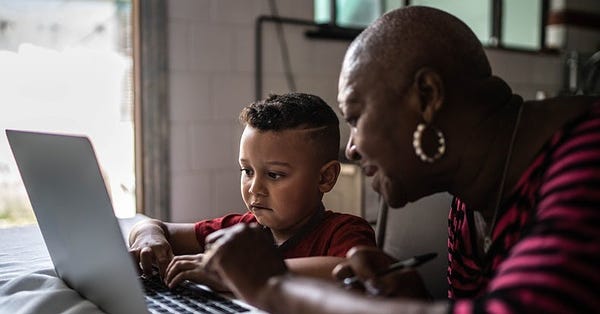We are living in a world where crises seem to mount at alarming speed. We see new storm clouds loom before the floods from past deluges have receded. How do we gather ourselves in the present, while we also try to contend with the recent past and prepare for an uncertain future?
These thoughts swirl around one of the dominant news stories of our age, an event of almost biblical proportions (even allowing for how that phrase is often overused) -- the global Covid pandemic.
As the United States approaches 1 million deaths, we cannot even process the full impact of the number.


Early in the pandemic, when some scientists estimated that hundreds of thousands could die, many saw the predictions as fear-mongering. These numbers were so big, so far beyond what any of us could imagine experiencing, that they seemed to be unrealistic doomsday scenarios. Surely if it turned out that bad, we would rally to whatever was necessary to protect human life.
As Covid spread rapidly and death tolls mounted, hope turned desperately to vaccines. We were cautioned that they often take years to develop and don’t always prove to be highly effective. But then, thanks to the hard work, dedication, and ingenuity of the global scientific research community, we had powerful new tools to fight this deadly contagion (within about a year!!!!). Certainly we all would rush out and embrace this life-giving new breakthrough. Tragically, we know how that turned out.
It is impossible to fully detail all the damage that this pandemic has wrought. Here is one metric that, as a doting grandfather myself, hits particularly hard.


Spurred on by these remembrances and the grim milestone we are reaching, we wanted to pause from all the other news and take stock of Covid. Now is a time when rates are plummeting in the United States, and even many of the more cautious among us are contemplating a more “normal” existence.
But we have been here before, only to see new variants tear apart our more hopeful expectations. We wanted to know today in the comments how you are feeling about Covid. Are you feeling more hopeful, or fearful? Have you changed your risk assessment, or not yet? Are you gathering with others, or planning to? Do you believe there will be a new variant that upends everything once more?
We thought that this would also be a good time to look back a little at our own coverage of the pandemic here on Steady, remembering some of the pain, suffering, and outrage we have sought to document and contextualize.
For those who may be interested, we thumbed through the Steady archives (albeit more like scrolled on our computers) to consider the distance we have traveled...or haven’t. Not surprisingly, the pandemic has been a frequent topic of our discourse here in this newsletter.
Our first piece was from February 2021, and it was a hopeful one.
My wife, Jean and I had just received our second shots of the Pfizer vaccine, and especially considering our ages, it felt like a new lease on life, an emergence from the darkness. The essay was a rumination on the power of vaccines, and what I witnessed in my own lifetime as deadly childhood plagues like polio were almost entirely eradicated. But ultimately, my goal was to share my deep gratitude for those who made this seemingly miraculous advance possible.
One important thing to note is these vaccines are being branded by the companies that made them —Moderna, Pfizer, Johnson and Johnson, etc. It makes sense for product shorthand and marketing, but none of this would have been possible without the scientists working in basic research over decades. Their curiosity-driven research about how life works at its most foundational levels was devoid of accolades, generous compensation, or in some instances even job security. But their perseverance led to revolutionary new insights and vaccine technologies the world had never known. And now their work is saving the world.
It may sound a bit corny, but if you have read this far, indulge me. Stop for a moment. Think of the countless hours spent in labs by brilliant minds, and say (if you're inclined out loud even), "Yay, Science!"
In the year since, our Covid journey has had more moments of heartbreak and setbacks than we could have ever have predicted. It has divided our nation to the point where we have seen some elected officials become what we called (in a newsletter from last August) “COVID cheerleaders.” There has been a growing animosity towards scientists and doctors. Much of it has come from Republicans and conservatives, but not exclusively. We were very concerned about statements the comedian Jon Stewart made on “The Late Show with Stephen Colbert,” where he shockingly said, “Can I say this about scientists? I love them, and they do such good work but they are going to kill us all.” In response, we published a newsletter “In Defense of Science.”
We have considered the cost to children, whom we called the “forgotten grievers,” spurred on by a study that showed “167,082 children under 18—more than one out of every 450—lost a parent or other in-home caregiver to COVID-19.” And we told the story of one of those families. Pamela Addison lost husband Martin, a health care worker, to COVID early in the pandemic. He was 44 years old and left behind two very young children.
Healthcare workers in general have borne an unusually difficult and in many cases unnecessary burden from the pandemic. We wrote an open letter entitled: “Dear American Healthcare Workers.”


In the letter, we said, “It is a cruel irony that those who denigrate basic measures of public health under the misguided banner of ‘freedom,’ have confined you (healthcare workers) to continued imprisonment in a nightmarish world of endless waves of new cases.”
Recently, we characterized the pandemic as “a tragedy without collective grief.” Even those of us who have not suffered directly from death or severe illness have had our lives collectively diminished by what we have faced. That is especially true of children, as Elliot related in sharing the experience of his daughters and their friends.
We hope that this is finally the last big wave of Covid receding. But we know that ultimately the virus can change faster than we can. We worry that the effects of this tragic era in world history will linger in ways we cannot predict -- medically, socially, economically, politically, culturally.
There are now new and pressing concerns that demand our attention. There always will be. But we wanted to create, once more, a space with all of you to think about Covid, to reflect as the Steady community, to share where we are, where we have been, and where we hope to go.
Perhaps, as the immediacy of the pandemic eventually passes into history, we can find ways to re-examine what took place. Perhaps we can find more unity once the political passions that stoked such divisions hopefully cool. Perhaps we can put in place new safeguards for our collective wellbeing.
If we are to have hope of making any progress, we will have to start by never forgetting.





I rage, still, that I lost my husband, NOT to covid-19, but to the lack of a hospital bed because so many refused vaccines in Tennessee and the southwestern portion of Virginia -- Trump country. My son lost his father. Virginia Tech lost one of their most valuable employees, a genius troubleshooter and dedicated worker who was honored with a memorial wreath on the drill field after his death. If the hospitals hadn't been overwhelmed, my husband would be alive today, healthy and contributing at the university and at home. I hold Trump responsible, as well as his ridiculous minions. "Dem hoax" indeed! We lost not only a million from the virus, but who knows how many more, due to lack of medical care for normal illnesses like heart attacks. We must count ALL the deaths, not just from covid, but from the lack of care due to the unvaxxed. The true number is far more than one million in the U.S. alone. Worldwide, I would guess it's closer to ten million dead. My husband, son, and I all vaxxed, masked, and washed hands faithfully. Still our lives are forever changed because he's gone. Unconscionable.
My state (MS) happened to have an outstanding Public Health Officer to help us navigate Covid-19. He was only first appointed in 2018. He announced his resignation today. Why? In part because he had an exhausting, often thankless job do to working in a Red state. The Governor who is/was a closet supporter of arriving at herd immunity by allowing people to get Covid, gave him no support whatsoever. The Gov. never assisted by directly speaking up to encourage vaccinations. Right wing "freedom" lovers attacked any mandatory or even voluntary masking. My state became the "Covid Death Capital" of the U.S. and is still first or second lowest in vaccinated individuals. Consider who Gov. DeSantis (FL) has selected to lead his state in health, a physician who is recommending that children not be vaccinated. Covid-19 has revealed quite a bit about our nation, and I don't find it pleasant, as even now there is a mis-guided convoy of persons protesting public safety issues in the name of a corrupted, egocentric, and inhuman notion of "freedom."